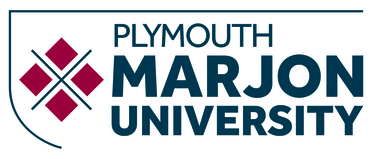Acute L-Glutamine Supplementation does not improve Gastrointestinal Permeability, Injury or Microbial Translocation in Response to Exhaustive High Intensity Exertional-Heat Stress
Ogden, Henry B., Fallowfield, Joanne L., Child, Robert B., Davison, Glen, Fleming, Simon C., Delves, Simon K., Millyard, Alison, Westwood, Caroline S. and Layden, Joseph D. (2021) Acute L-Glutamine Supplementation does not improve Gastrointestinal Permeability, Injury or Microbial Translocation in Response to Exhaustive High Intensity Exertional-Heat Stress. European Journal of Sport Science, 22 (12). pp. 1865-1876. ISSN 1746-1391
|
Text
Acute L-Glutamine Supplementation does not improve Gastrointestinal Permeability, Injury or Microbial Translocation in Response to Exhaustive High Intensity Exertional-Heat Stress - ACCEPTED.pdf - Accepted Version Download (537kB) | Preview |
Abstract
Purpose Exertional-heat stress adversely distrupts (GI) barrier integrity and, through subsequent microbial translocation (MT), can result in potentially fatal exertional-heat stroke. Acute glutamine (GLN) supplementation is a potential nutritional countermeasure, although the practical value of current supplementation regimens is questionable. Method: Ten males completed two high-intensity exertional-heat stress tests (EHST) involving running in the heat (40°C and 40% relative humidity) at lactate threshold to volitional exhaustion. Participants ingested GLN (0.3 g·kg·FFM-1) or a non-calorific placebo (PLA) one hour prior to the EHST. Venous blood was drawn pre-, post- and one-hour post-EHST. GI permeability was assessed using a serum dual-sugar absorption test (DSAT) and small intestinal epithelial injury using plasma Intestinal Fatty-Acid Binding Protein (I-FABP). MT was assessed using the Bacteroides/total 16S DNA ratio. Results: Volitional exhaustion occurred after 22:19 ± 2:22 (minutes: seconds) in both conditions, during which whole-body physiological responses and GI symptoms were not different (p ˃ 0.05). GI permeability (serum DSAT) was greater following GLN (0.043 ± 0.020) than PLA (0.034 ± 0.019) (p = 0.02; d = 0.47), but small intestine epithelial injury (I-FABP) increased comparably (p = 0.22; η2p = 0.16) following the EHST in both trials (GLN Δ = 1.25 ± 0.63 ng·ml-1; PLA Δ= 0.92 ± 0.44 ng·ml-1). GI MT (Bacteroides/total 16S DNA ratio) was unchanged in either condition following the EHST (p = 0.43). Conclusion: Acute low-dose (0.3 g·kg-1 fat free mass) GLN supplementation ingested one hour before high-intesity exertional-heat stress worsened GI permeability, but did not influence either small intestinal epithilial injury or microbial translocation. Highlights: The pathophysiology of exertional-heat stroke is widely hypothesised to be at least in part attributable to a systemic inflammatory response caused by the leak of gastrointestinal microbes into the circulating blood. Acute high-dose (0.9 g·kg·FFM-1) L-glutamine supplementation is widely promoted as a practical strategy to protect gastrointestinal barrier integrity during exertional-heat stress. However, previously validated doses are often poorly tolerated and cannot be recommended for widespread implementation. This study examined the efficacy of low-dose (0.30 g·kg·FFM-1; ∼20 grams) acute L-glutamine supplementation on small intestinal injury, permeability, and microbial translocation in response a high-intensity exertional-heat stress test to exhaustion (20 – 30 minutes). This type of exercise accounts for the majority of exertional-heat stroke cases in the military. Despite being universally well-tolerated across all participants, acute low-dose L-glutamine supplementation worsened gastrointestinal permeability, without influencing either small intestinal injury or microbial translocation. These findings do not support the application of low-dose L-glutamine supplementation to help prevent exertional-heat stroke.
| Item Type: | Article |
|---|---|
| Additional Information: | Full text accessible with a Marjon Shibboleth login. |
| Keywords: | Gut, Exercise, Endotoxin, Heat Stroke, Sport |
| Depositing User: | Ms Raisa Burton |
| Date Deposited: | 17 Nov 2021 12:01 |
| Last Modified: | 05 Jun 2024 13:03 |
| URI: | https://marjon.repository.guildhe.ac.uk/id/eprint/17666 |
| Related URLs: |
https://www.tan ... 91.2021.2001575
(Publisher URL)
|
Actions (login required)
 |
Edit Item |

